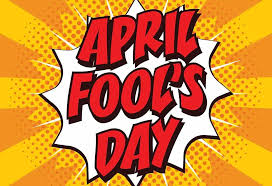April Fools’ Day
April Fools' Day, which falls on April 1st every year, has been observed for several centuries by several cultures, however, its precise history is still unknown. April Fools' Day customs involve pulling practical pranks or hoaxes on people, and at the conclusion, exclaiming "April Fools!" to reveal the theme of the April Fools' Day joke. The media's and big businesses' acceptance of April Fools' Day jokes has guaranteed the longevity of this unofficial holiday, even though its precise origins remain unknown.
Origins of April Fools' Day
According to some historians, April Fools' Day originated in France in 1582 when the country converted from the Julian to the Gregorian calendar, as mandated by the Council of Trent in 1563. The spring equinox, which fell on or around April 1, marked the start of the new year in both the Julian and Hindu calendars.
People who were slow to get the news or failed to recognize that the start of the new year had moved to January 1 and continued to celebrate it during the last week of March through April 1 became the butt of jokes and hoaxes and were called “April fools.” These pranks included having paper fish placed on their backs and being referred to as “poisson d’avril” (April fish), said to symbolize a young, easily caught fish and a gullible person.
Hilaria in Ancient Rome
Historians have also linked April Fools' Day to festivals such as Hilaria (Latin for joyful), which was celebrated in ancient Rome at the end of March by followers of the cult of Cybele. It involved people dressing up in disguises and mocking fellow citizens and even magistrates and was said to be inspired by the Egyptian legend of Isis, Osiris, and Seth.
There’s also speculation that April Fools’ Day was tied to the vernal equinox, or the first day of spring in the Northern Hemisphere when Mother Nature fooled people with changing, unpredictable weather.
History of April Fools' Day
April Fools' Day spread throughout Britain during the 18th century. In Scotland, the tradition became a two-day event, starting with “hunting the gowk,” in which people were sent on phony errands (gowk is a word for cuckoo bird, a symbol for fool) and followed by Tailie Day, which involved pranks played on people's derrieres, such as pinning fake tails or “kick me” signs on them.









